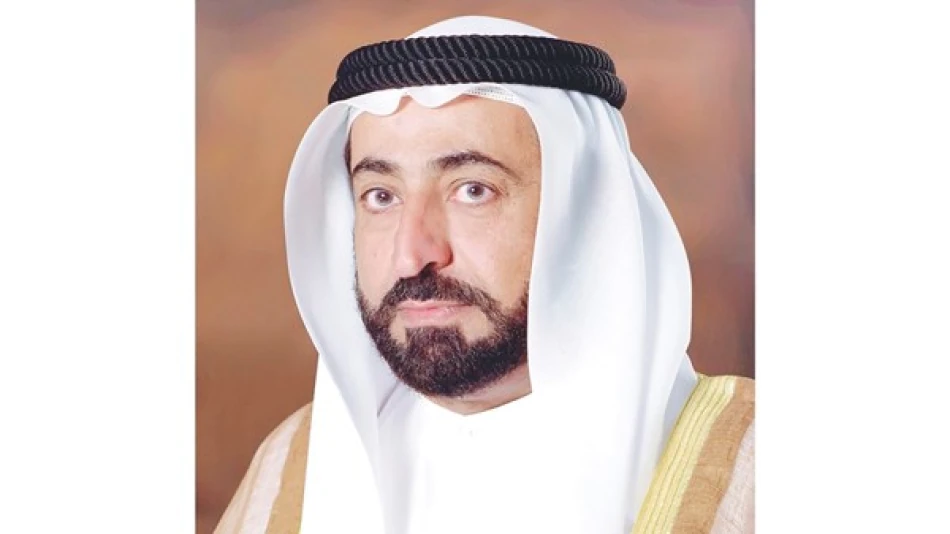
Sharjah Ruler Approves Land Allocation for Citizens in Al Harai, Khorfakkan
Sharjah's Strategic Land Allocation Signals UAE's Continued Focus on Economic Diversification
Sharjah's ruler has approved a major land allocation project in Khor Fakkan's Al-Harai area, designating 690 plots for citizens across residential, industrial, and commercial sectors. The initiative, which includes 180 residential plots, 450 industrial sites, and 60 commercial areas, represents a significant push to strengthen the emirate's economic infrastructure and citizen welfare programs.
Ambitious Timeline Reflects Government Efficiency Drive
Sheikh Dr. Sultan bin Mohammed Al Qasimi has set an aggressive two-month timeline for land preparation and distribution to eligible recipients. This rapid implementation schedule aligns with the UAE's broader governance efficiency initiatives, where government services are increasingly delivered with private sector-like speed and precision.
The inclusion of a public park in the development plan demonstrates the emirate's commitment to balanced urban planning, ensuring that economic growth doesn't come at the expense of quality of life for residents.
Industrial Focus Points to Manufacturing Renaissance
The allocation of 450 industrial plots—representing nearly two-thirds of the total land package—signals Sharjah's strategic emphasis on manufacturing and industrial development. This move comes as Gulf states increasingly pivot away from oil dependency, with the UAE targeting a 75% non-oil GDP contribution by 2030.
Khor Fakkan's Geographic Advantage
The choice of Khor Fakkan is particularly strategic. Located on the UAE's east coast facing the Gulf of Oman, the city offers direct access to Asian markets without navigating the congested Strait of Hormuz. This positioning could prove invaluable for manufacturers targeting India, Pakistan, and broader South Asian markets.
Citizen-Centric Development Model Gains Momentum
By restricting land allocation to citizens, Sharjah reinforces the UAE's model of ensuring nationals remain primary beneficiaries of economic development. This approach contrasts with more open investment zones elsewhere in the country and reflects a careful balance between attracting foreign investment and protecting citizen interests.
The residential component addresses ongoing housing needs while the commercial plots create opportunities for Emirati entrepreneurs to establish businesses in a government-supported environment.
Regional Competition for Industrial Investment Intensifies
This land allocation comes as regional competition for manufacturing investment heats up. Saudi Arabia's NEOM project, Qatar's industrial cities, and Oman's Duqm Special Economic Zone are all vying for the same pool of international manufacturers looking to establish Middle Eastern operations.
Sharjah's advantage lies in its established industrial ecosystem, existing logistics infrastructure, and proximity to Dubai's financial services sector. The emirate already hosts over 1,000 industrial facilities, providing a ready-made supply chain and skilled workforce for new entrants.
Market Implications and Investment Outlook
For investors and businesses, this development represents both opportunity and validation of Sharjah's industrial strategy. The rapid timeline suggests strong government commitment, while the scale indicates confidence in demand from Emirati citizens and businesses.
The initiative also reinforces Sharjah's position as the UAE's manufacturing hub, potentially attracting complementary investments in logistics, technology services, and industrial financing. Real estate developers and construction companies should see immediate benefits from the infrastructure development required to prepare these sites.
Most Viewed News

 Layla Al Mansoori
Layla Al Mansoori






